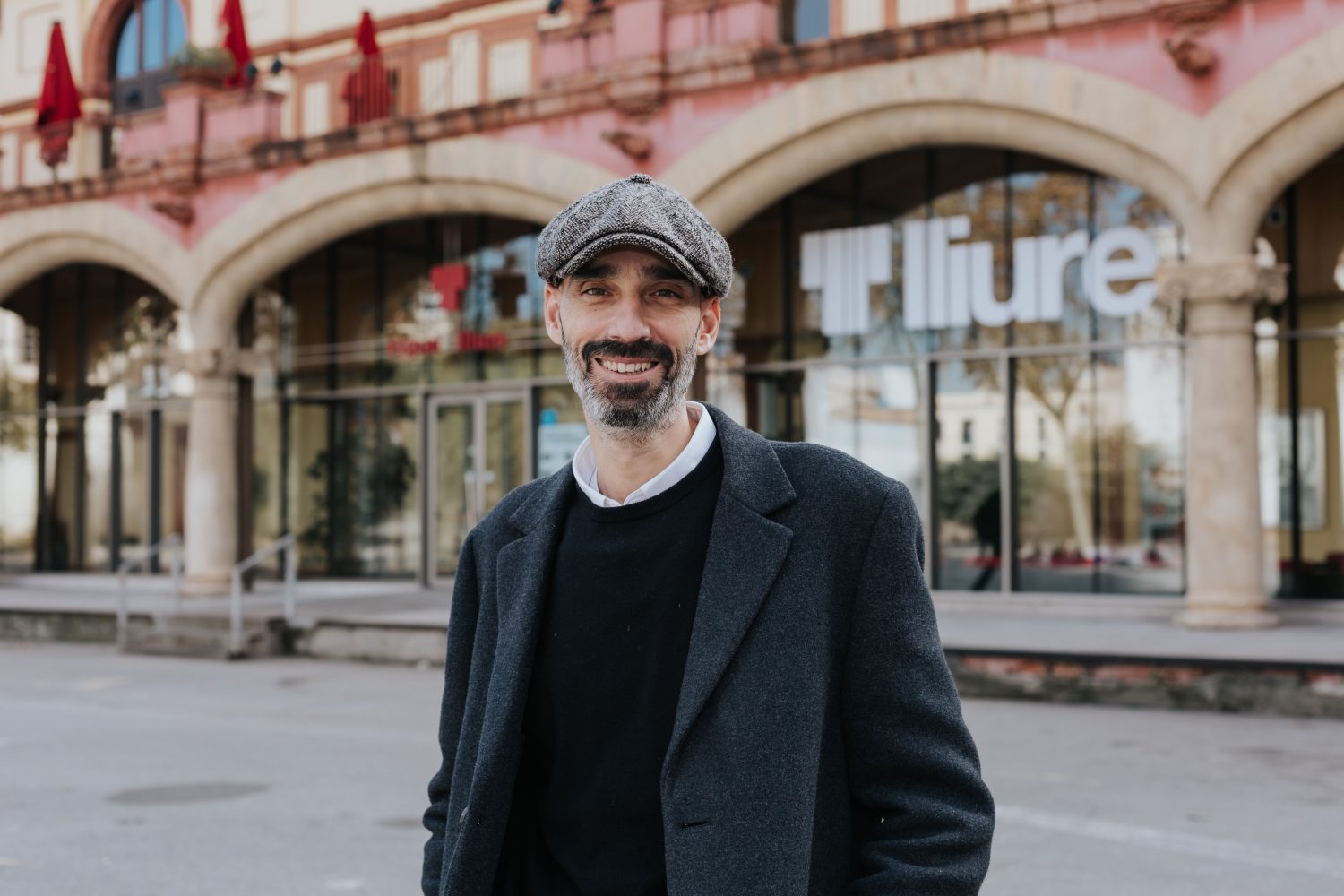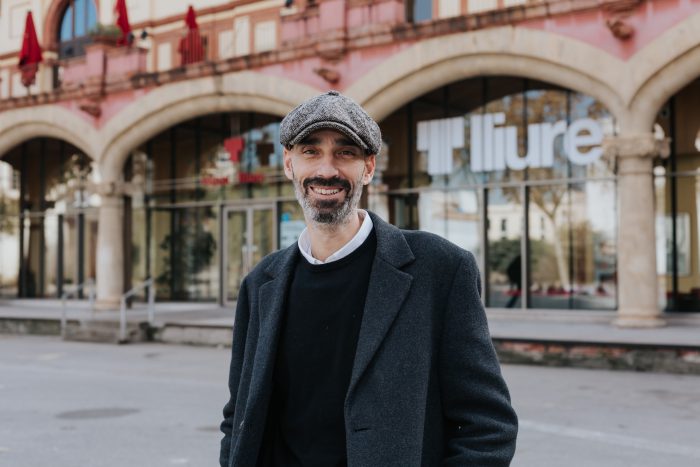We are all theatre. We speak with Juan Carlos Martel, director of the Teatre Lliure Foundation.

On World Theatre Day, we had the privilege of speaking with Juan Carlos Martel, a leading figure in performing arts in our country and director of the Teatre Lliure Foundation, one of Spain’s most important centres for the creation and presentation of performing arts. Together with the Teatre Lliure Foundation, we collaborate in the theatre’s annual programming and jointly promote the Carlota Soldevila Extraordinary Support for Artistic Creation, grants which support the development of projects conceived by talented young people in the performing arts. Through our conversation with Juan Carlos Martel we were able to discover his influences and points of reference, as well as his vision on the transformative role of the theatre and the importance of the arts in our society.
Today is World Theatre Day. Why is it important to continue celebrating it?
Now more than ever, we must celebrate the fact that we can get together in theatres once again, even in the midst of a persisting global pandemic and another war in Europe.
In your view, what does theatre contribute to people and to social progress?
The word “transform” is often used in association with the Performing Arts, and although it is true that the theatre has the power to transform, we should not forget that this means shifting the form, shaping it based on what you see. The theatre is still the place where a community comes together to see, or not see, everything that is happening to us as a society. It is a space to get to know each other again and to make the things we forget present once again, which explains why we say “represent”. It is a public space to collectively share our stories, and one where we will certainly never feel alone. The best way of celebrating it then, is to go with the routine of necessity.
How did you come to realise the importance of theatre in society and in your own life? What were your points of reference?
I was fortunate in that, one day, someone took me to the theatre and I was never again able to detach myself from the sensory and emotional capabilities that theatre arts gave me. We are all theatre. Theatre is a virtue inherent to people. From a very young age we all like to capture the attention of an audience and then, as adults, we put a mask on ourselves each day before leaving the house. We listen to what we should we wear and we learn from mistakes. So it is in the theatre. There cannot be a society without theatre, because society itself is made from theatre. My points of reference are artistic and human. There are too many to count, but it is true that at certain times I go in search of Masters who will teach me the craft. Because this is a craft of artisans rather than artists.
Where is the theatre going? What lies ahead for the performing arts?
If I only knew… in the short term I believe that what we need is to get back around the fire, for the theatre to tell us stories in which we can all see ourselves. I believe that there is still a lot of room to improve accessibility in performing arts, which have tended to favour elitism. Although education will always be the base, we have to begin to add parameters that have more to do with health. It is more appropriate to associate the theatre with health than with the economy, despite the fact that it is a clear economic driver. I think we should go back to explaining myths, but now in the context of 2022, with all the knowledge and paradigm shifts of our age. Among individuals, through collectives, we need to feel part of a whole community. I think that there will be an obvious difference between productive theatre and creative theatre, one associated with market parameters and the other with entirely social and educational parameters, with a clear trend towards improving our health.

